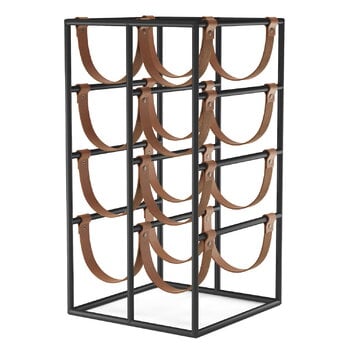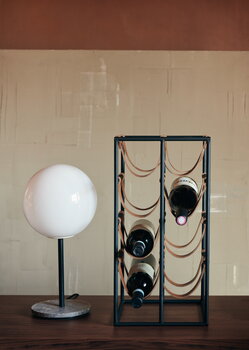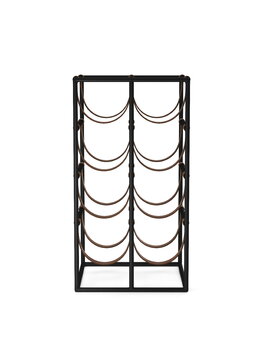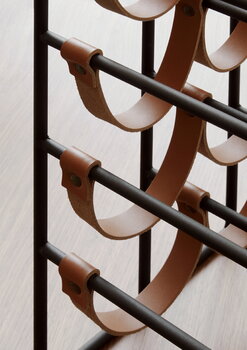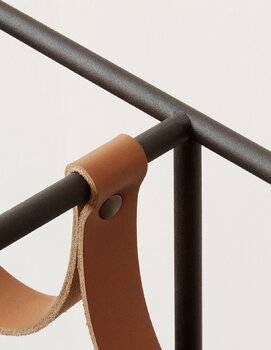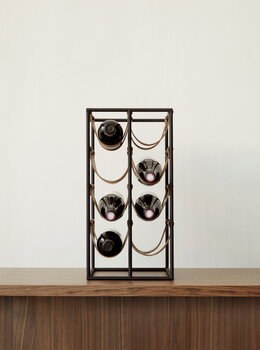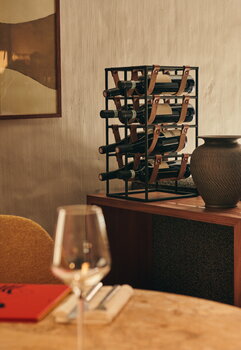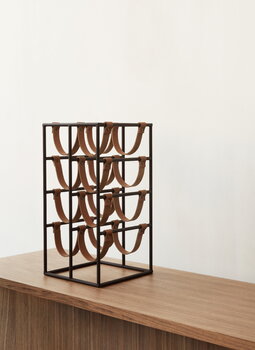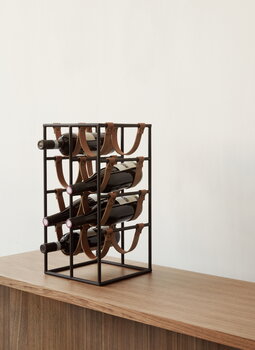The Audo Copenhagen Umanoff wine rack combines black powder-coated steel and soft leather. The sculptural yet practical wine rack acts as an eye-catching element and is ideal for a wine cellar, dining area or kitchen. Designed by Arthur Umanoff, the modern and industrial rack has space for eight bottles.
The Umanoff collection brings iconic designs by Arthur Umanoff back into production. American-born Arthur Umanoff was one of the designers of the modern movement in the middle of the century. In his designs, Umanoff favoured long-lasting natural materials and stylish silhouettes.

